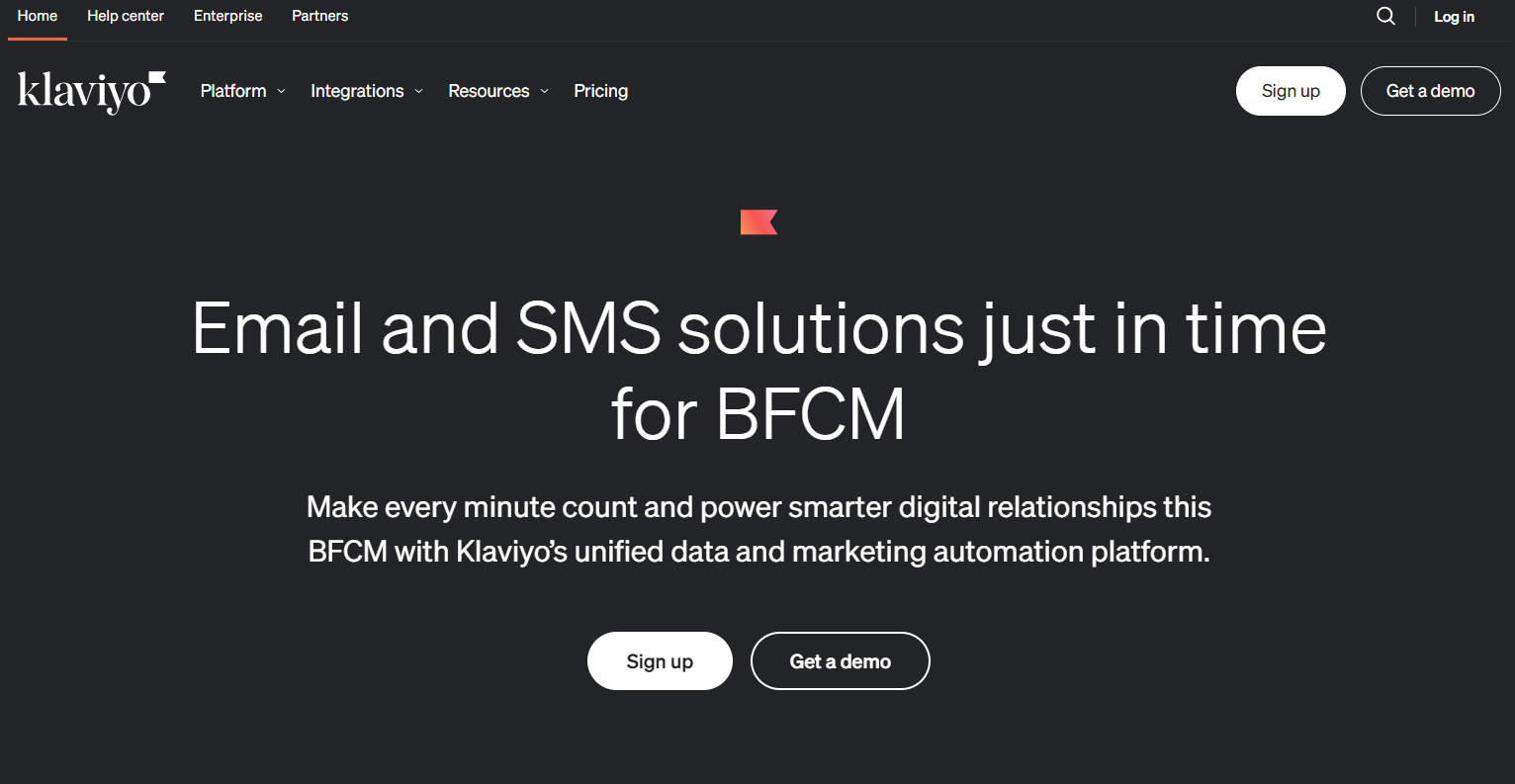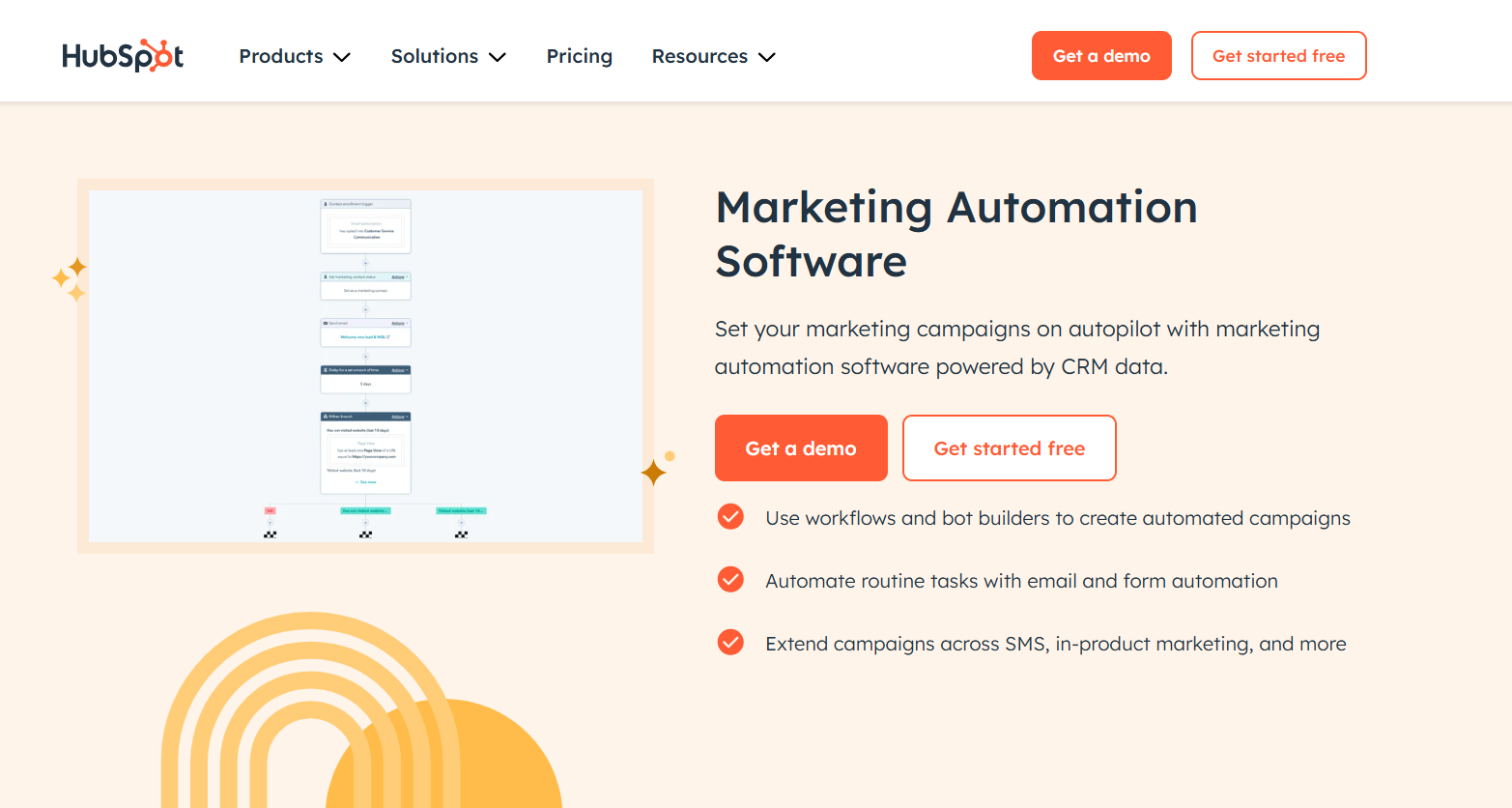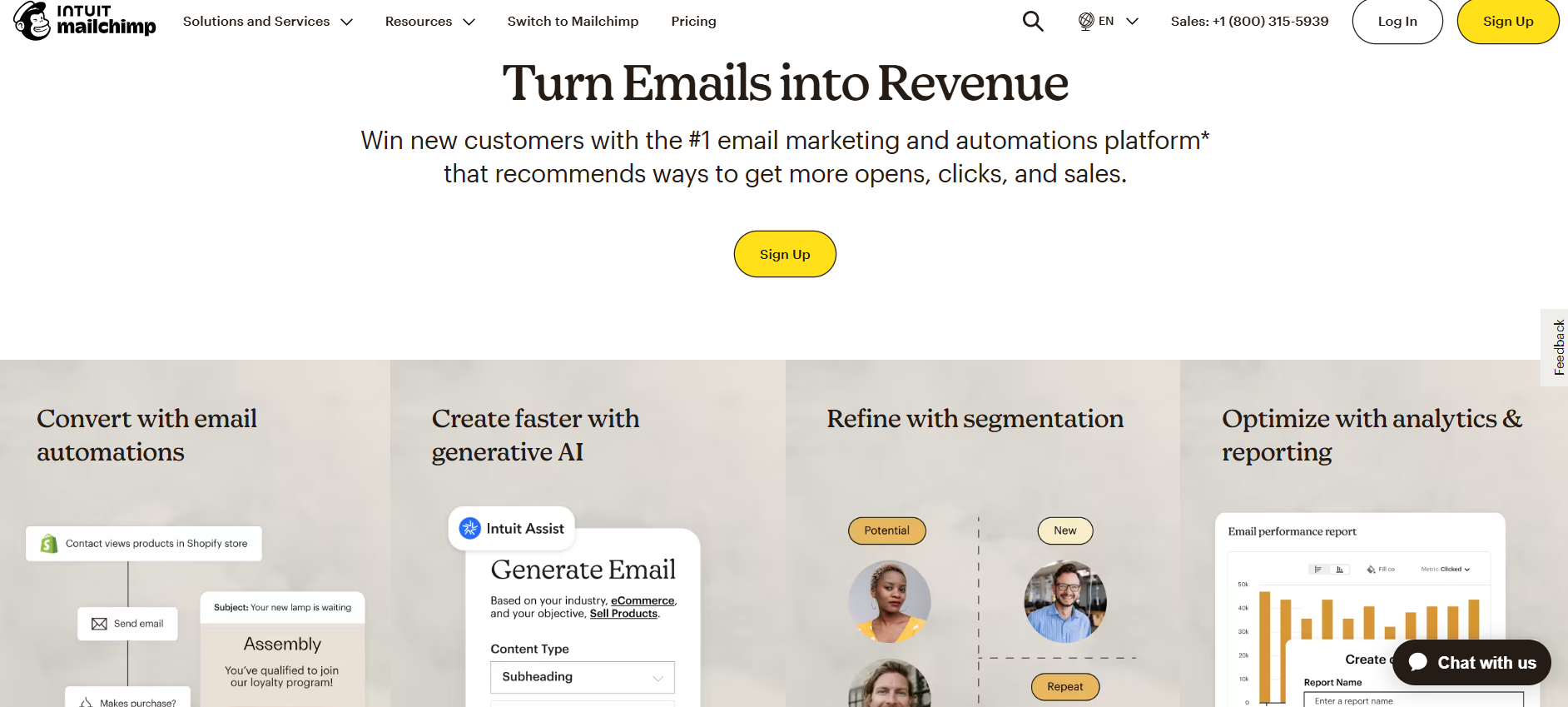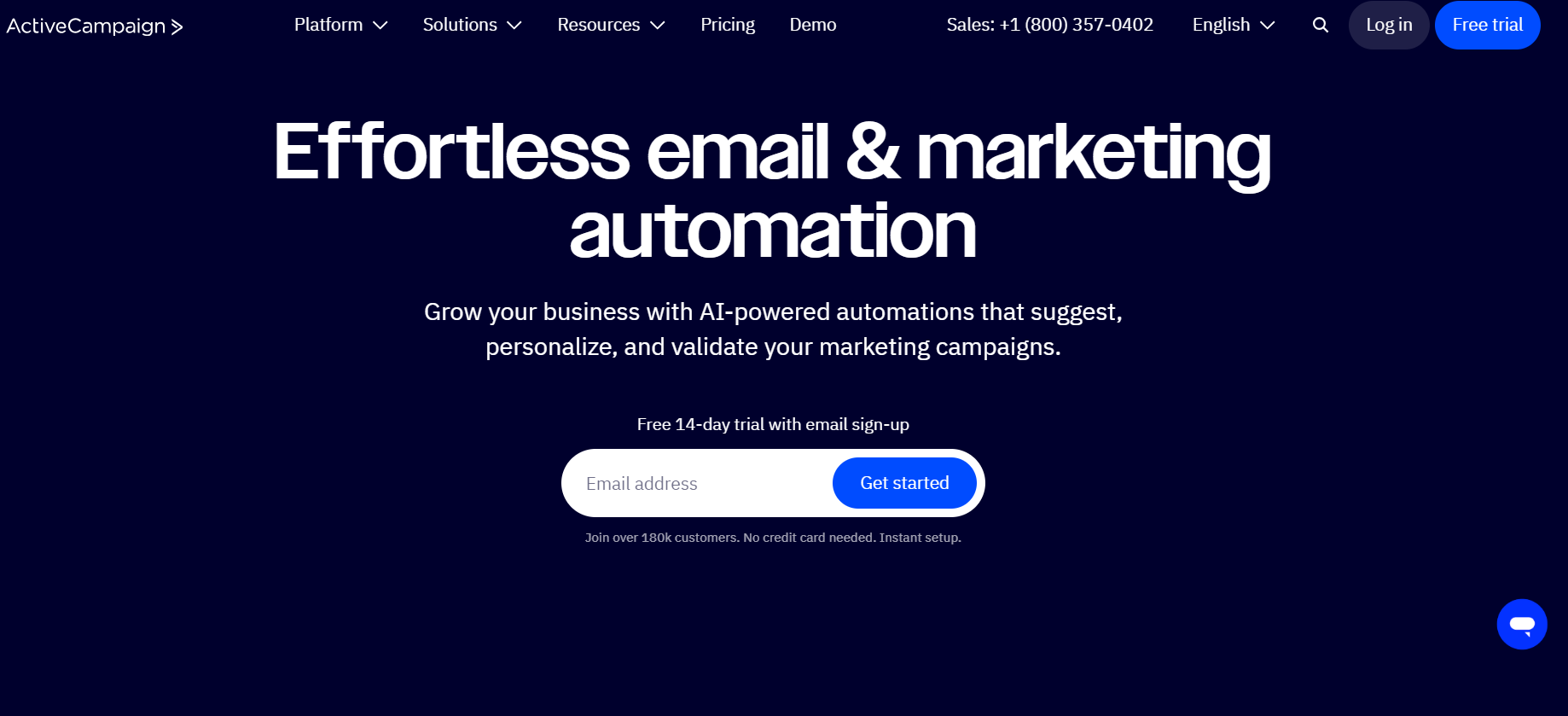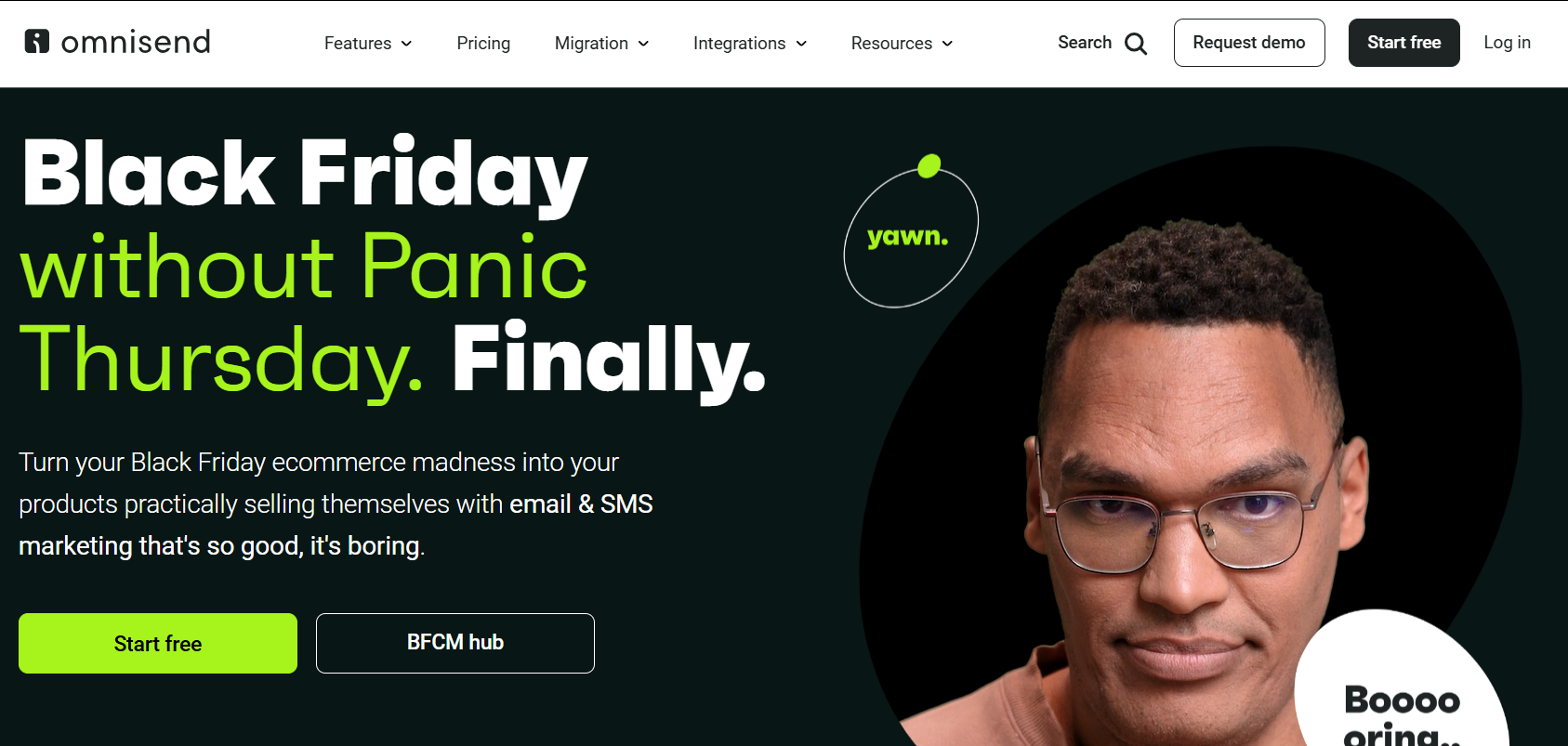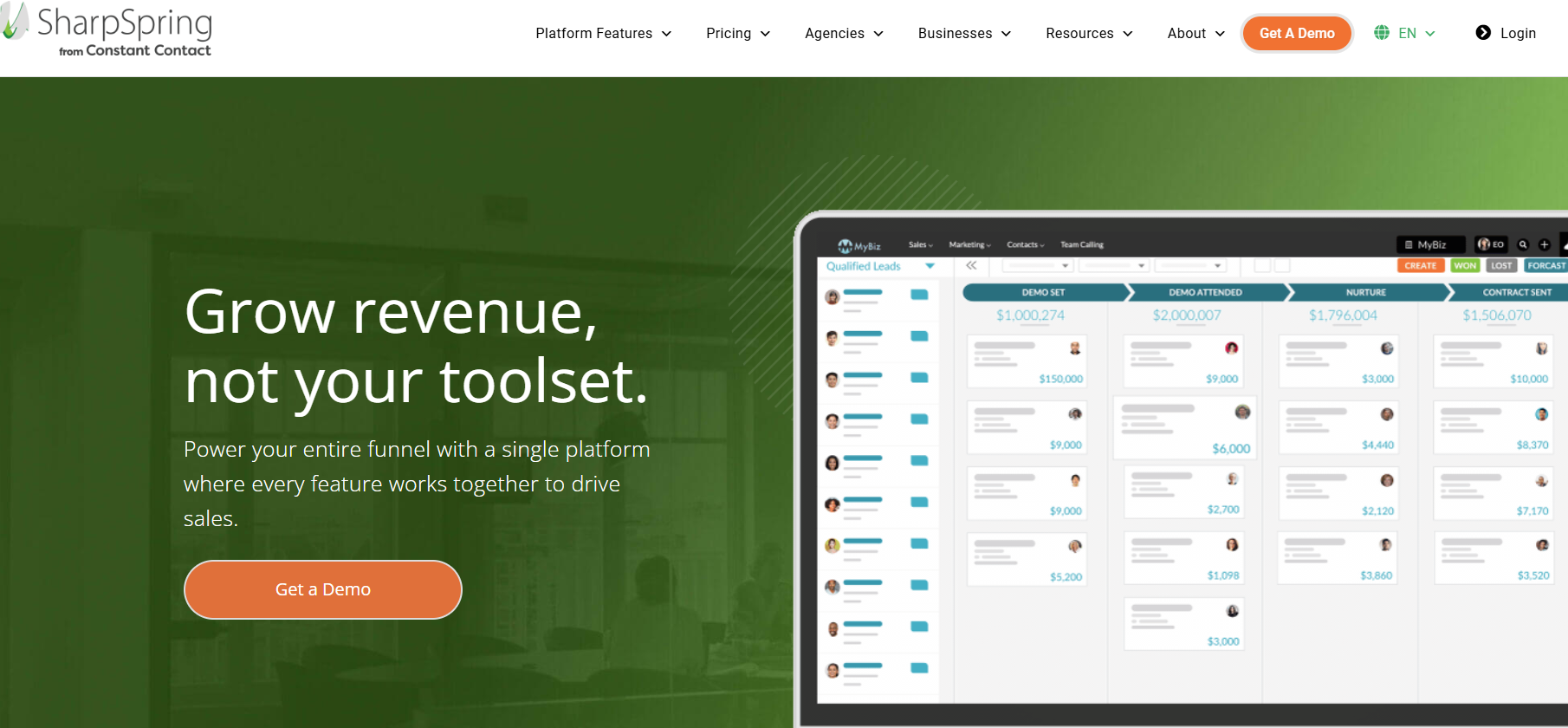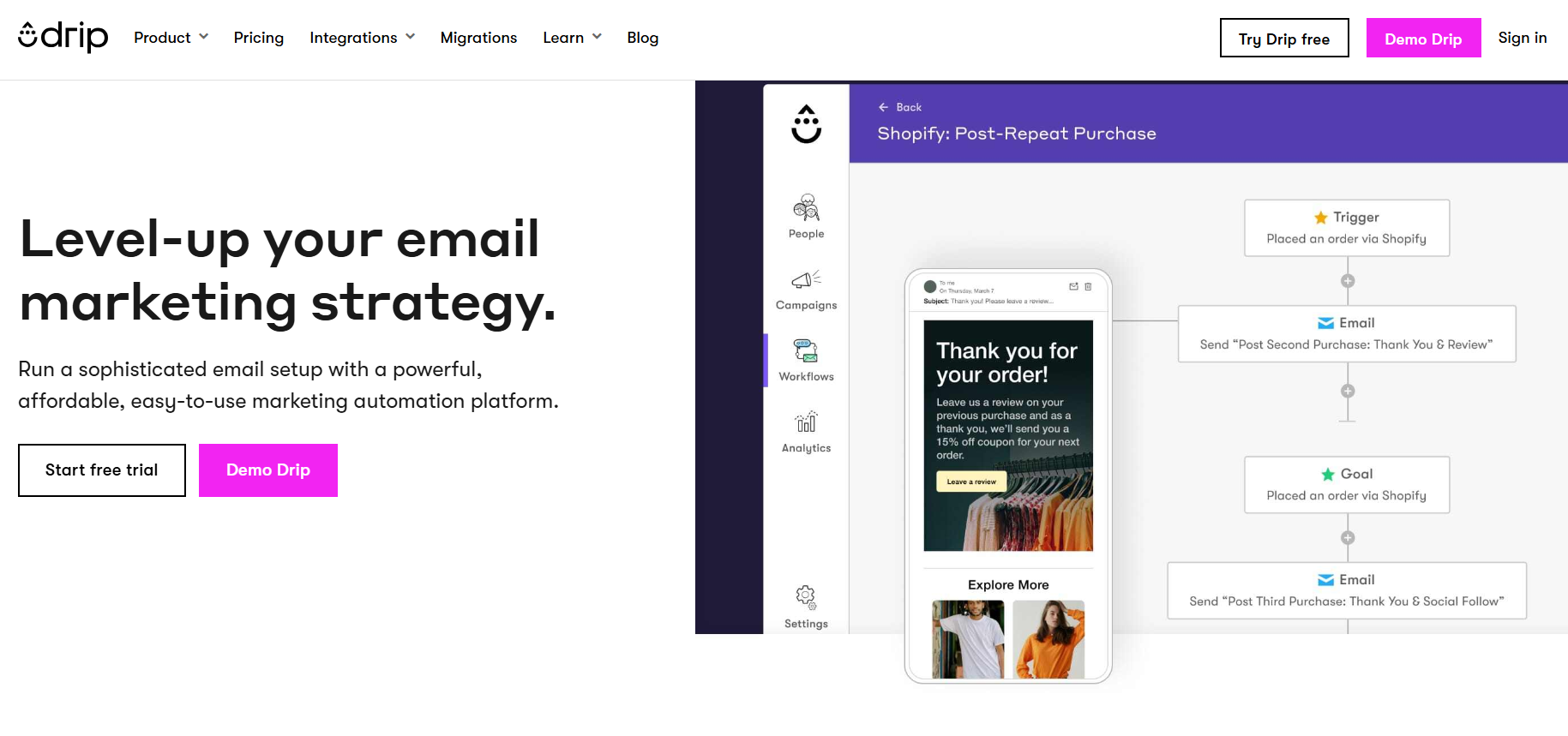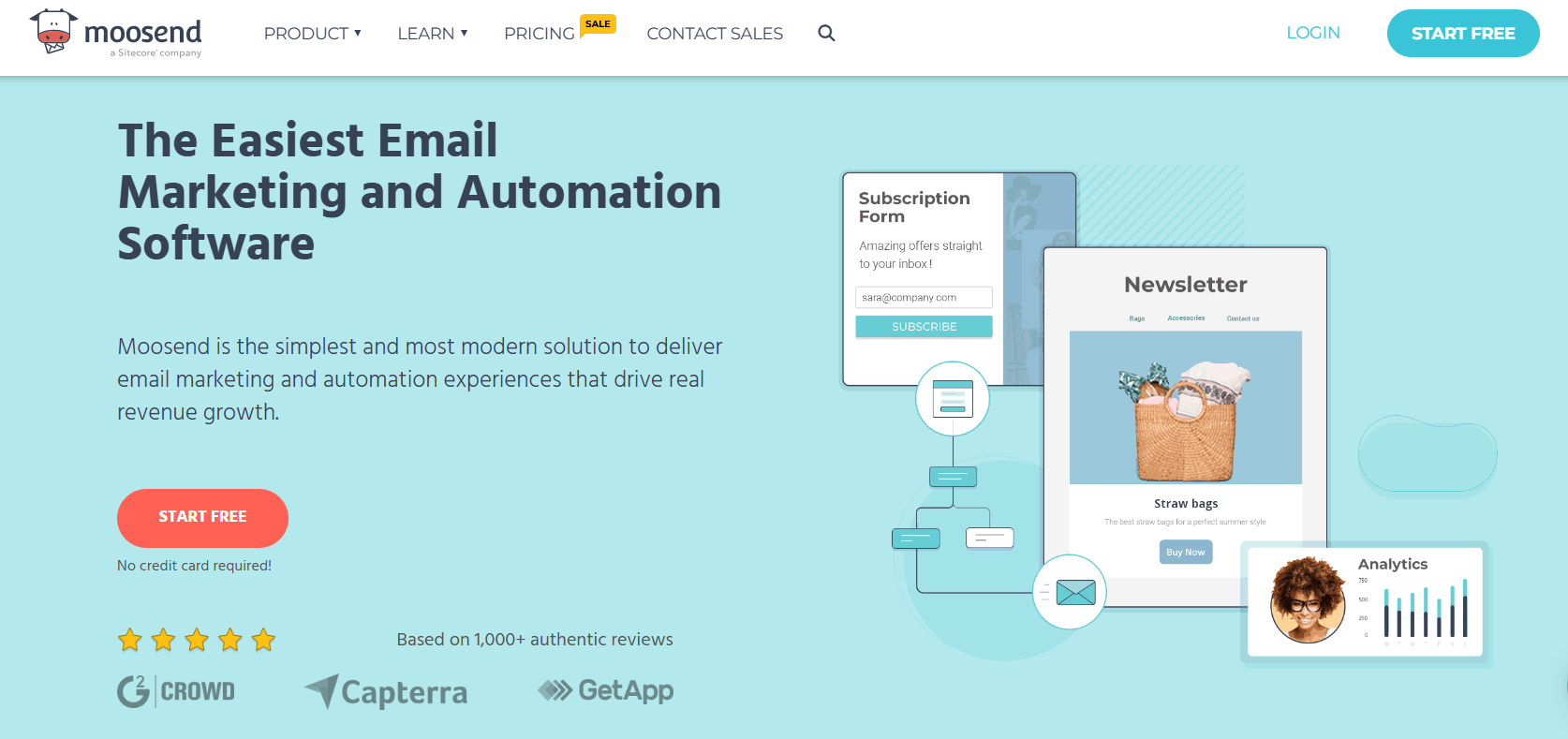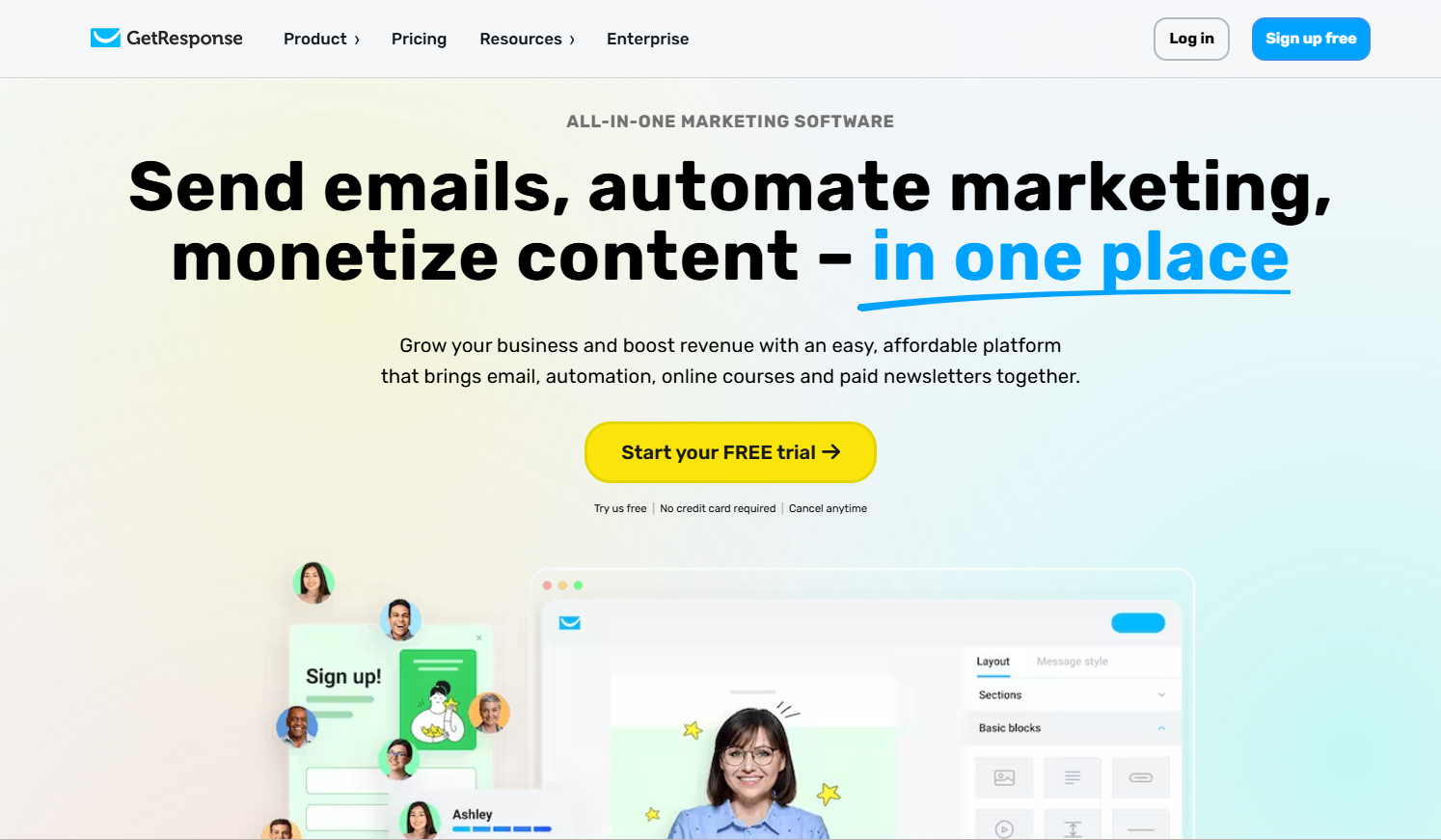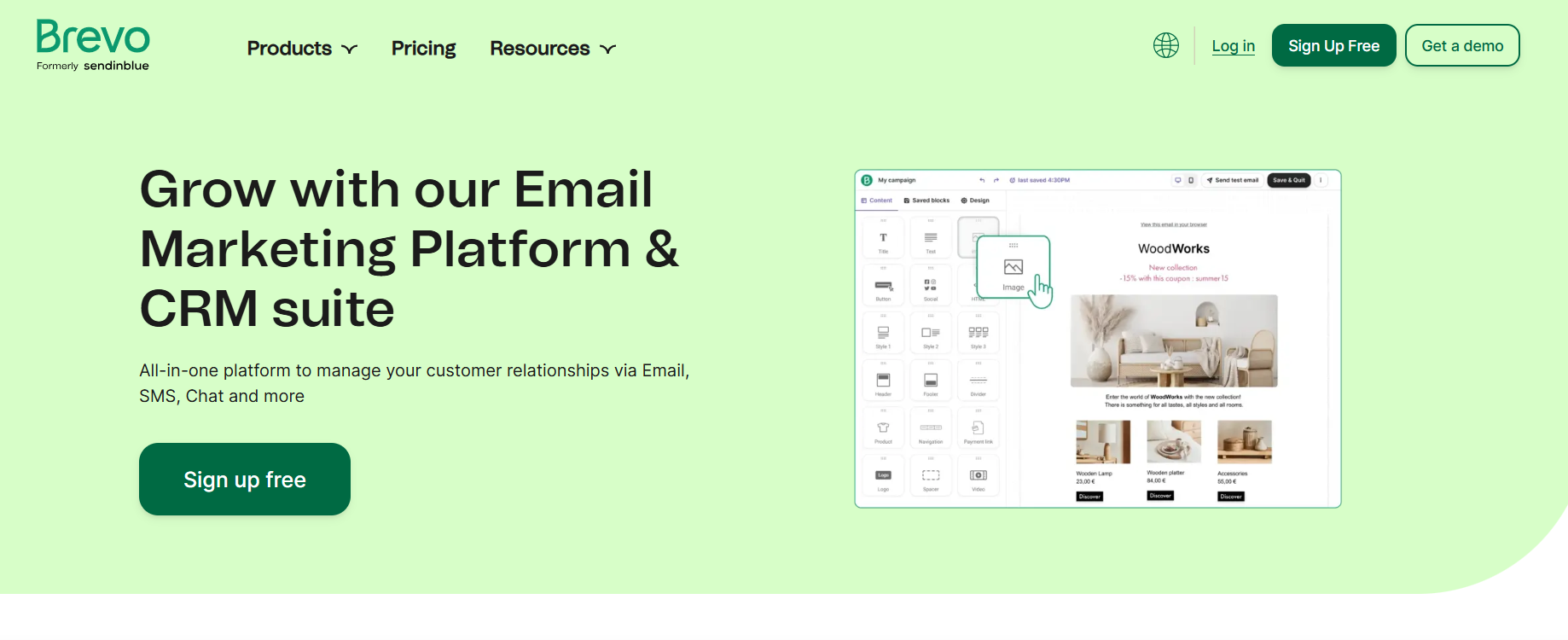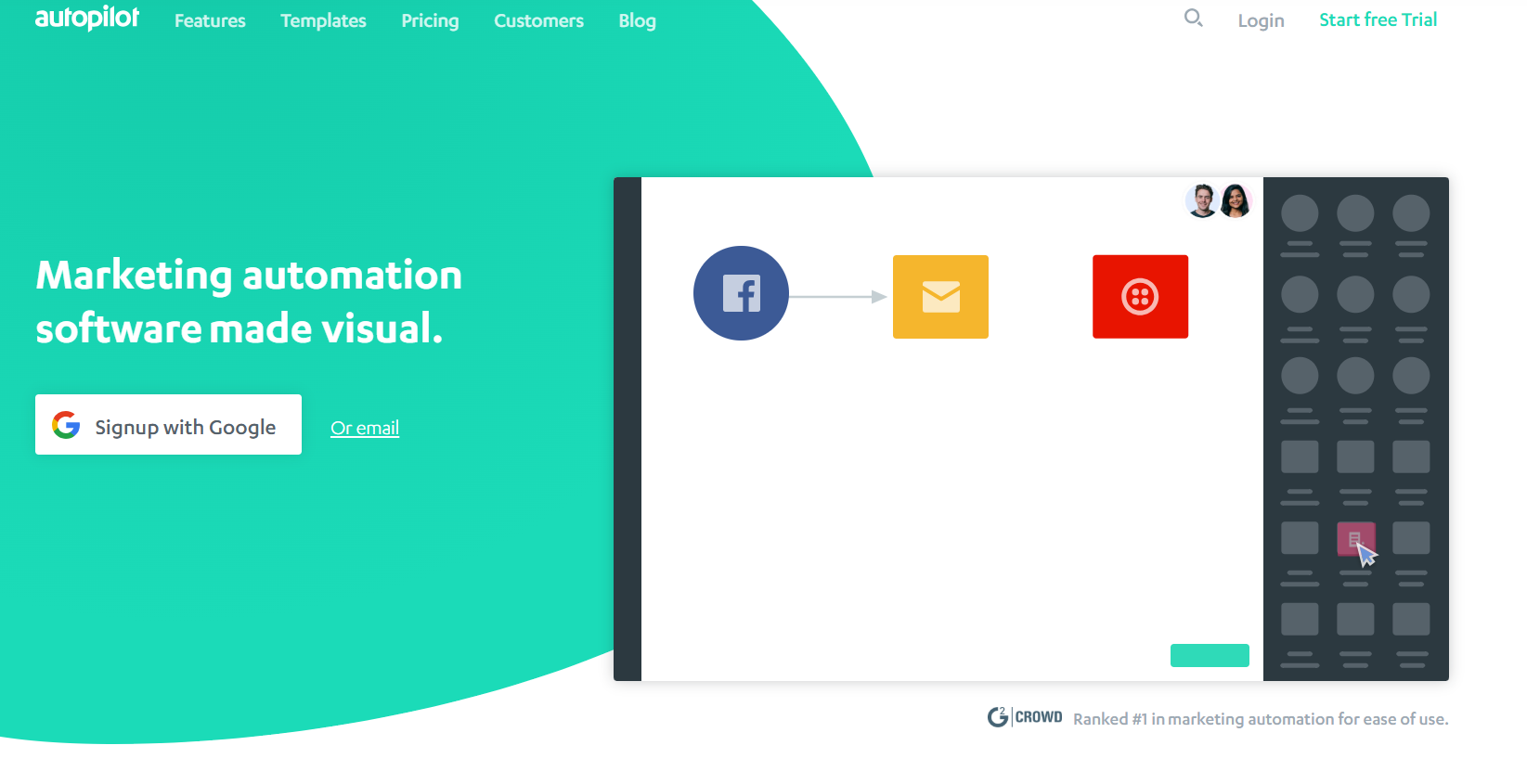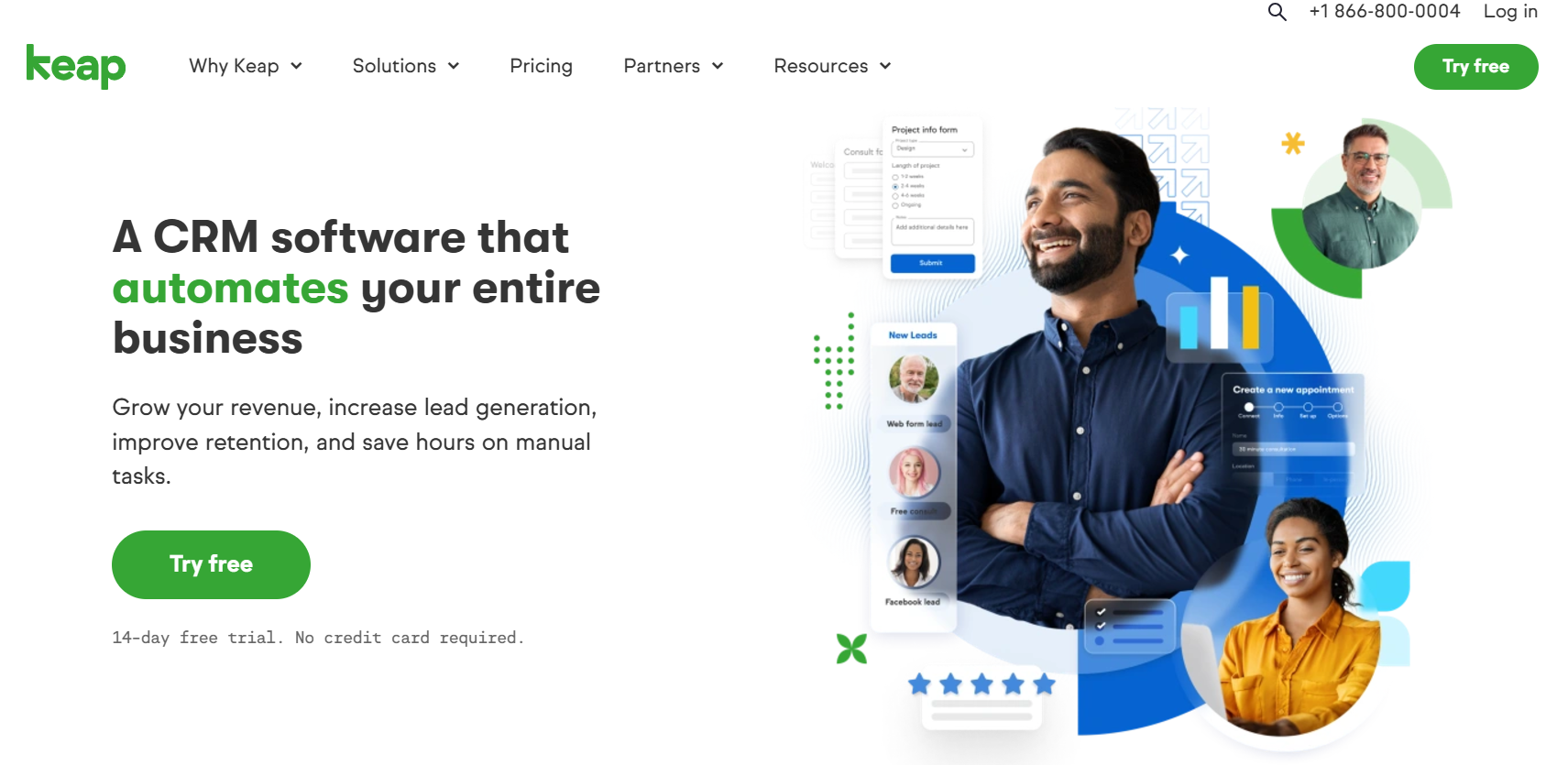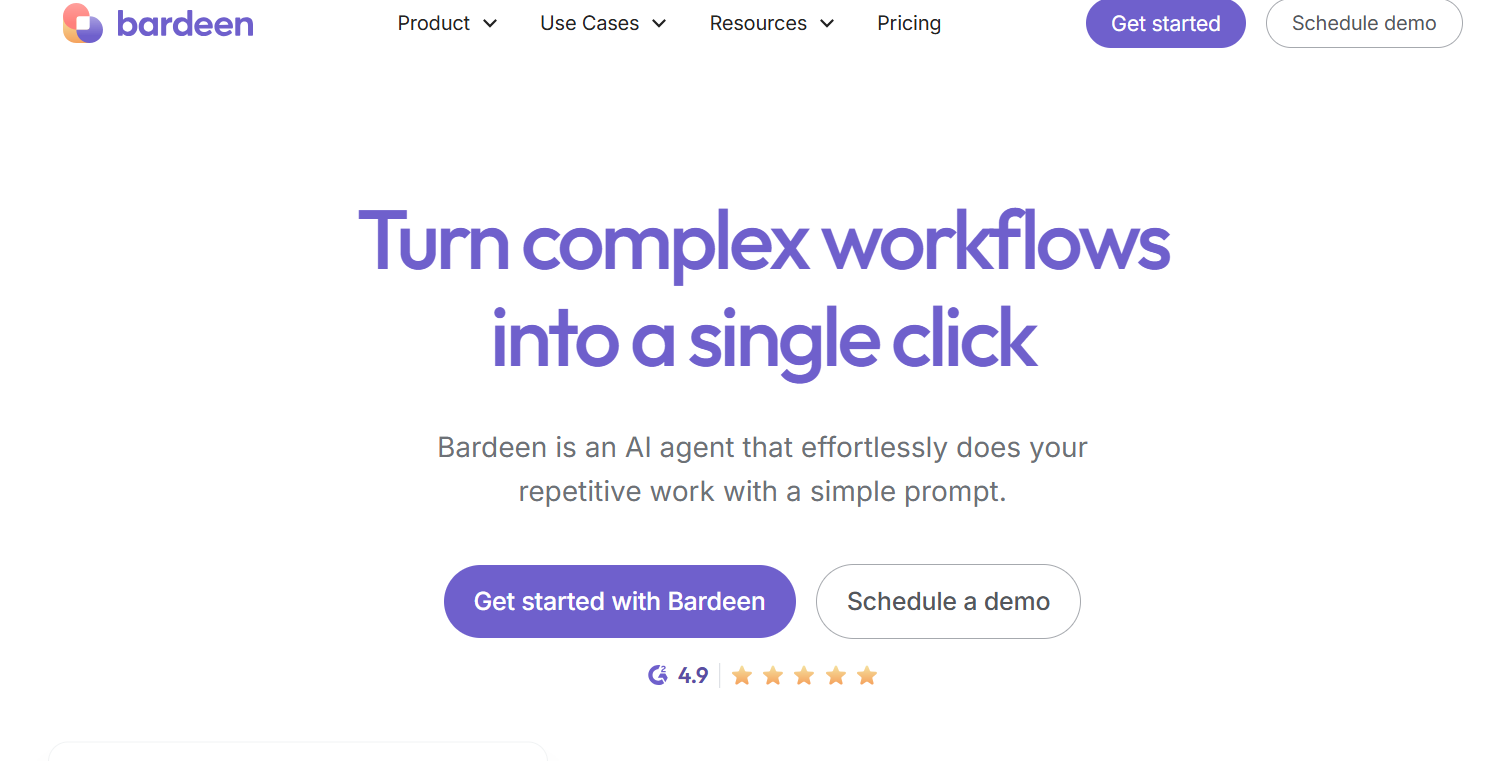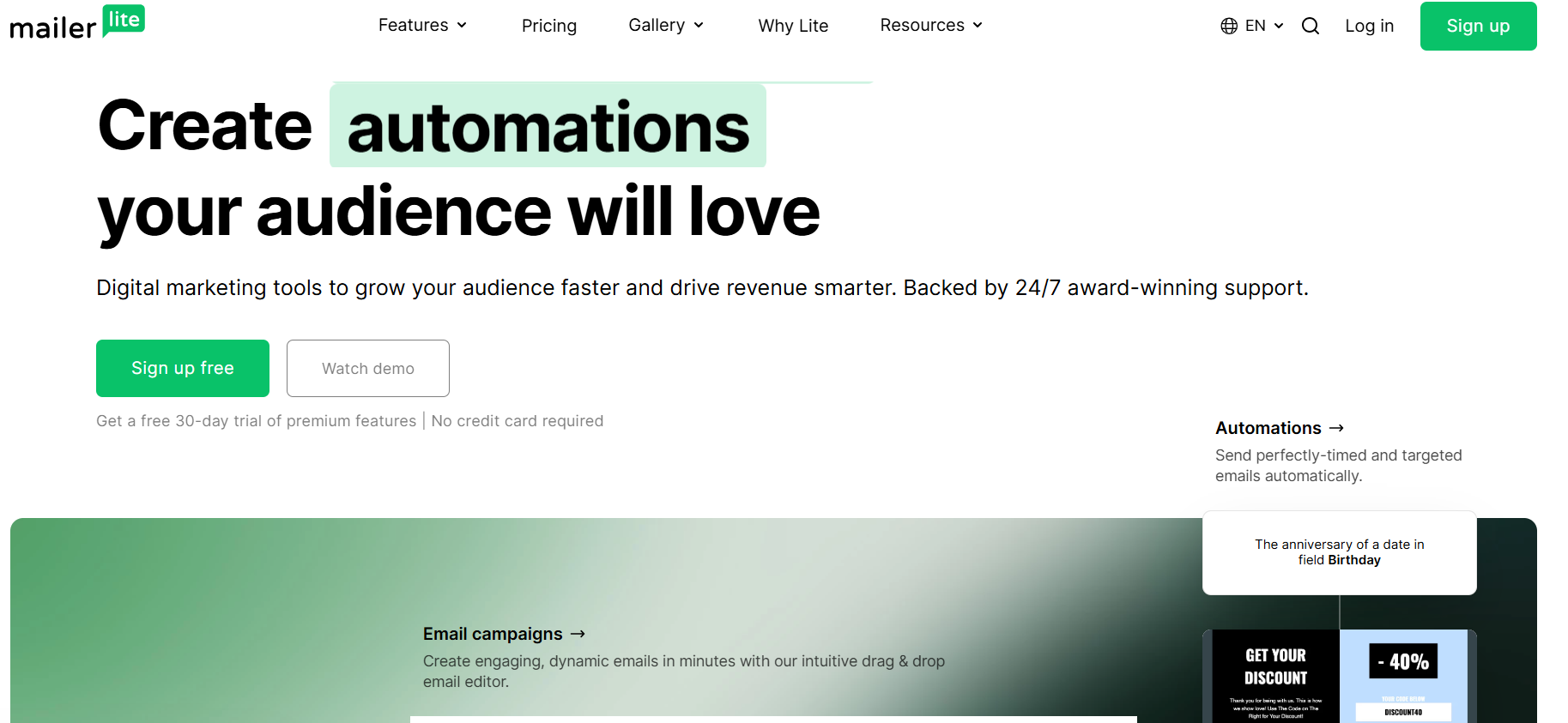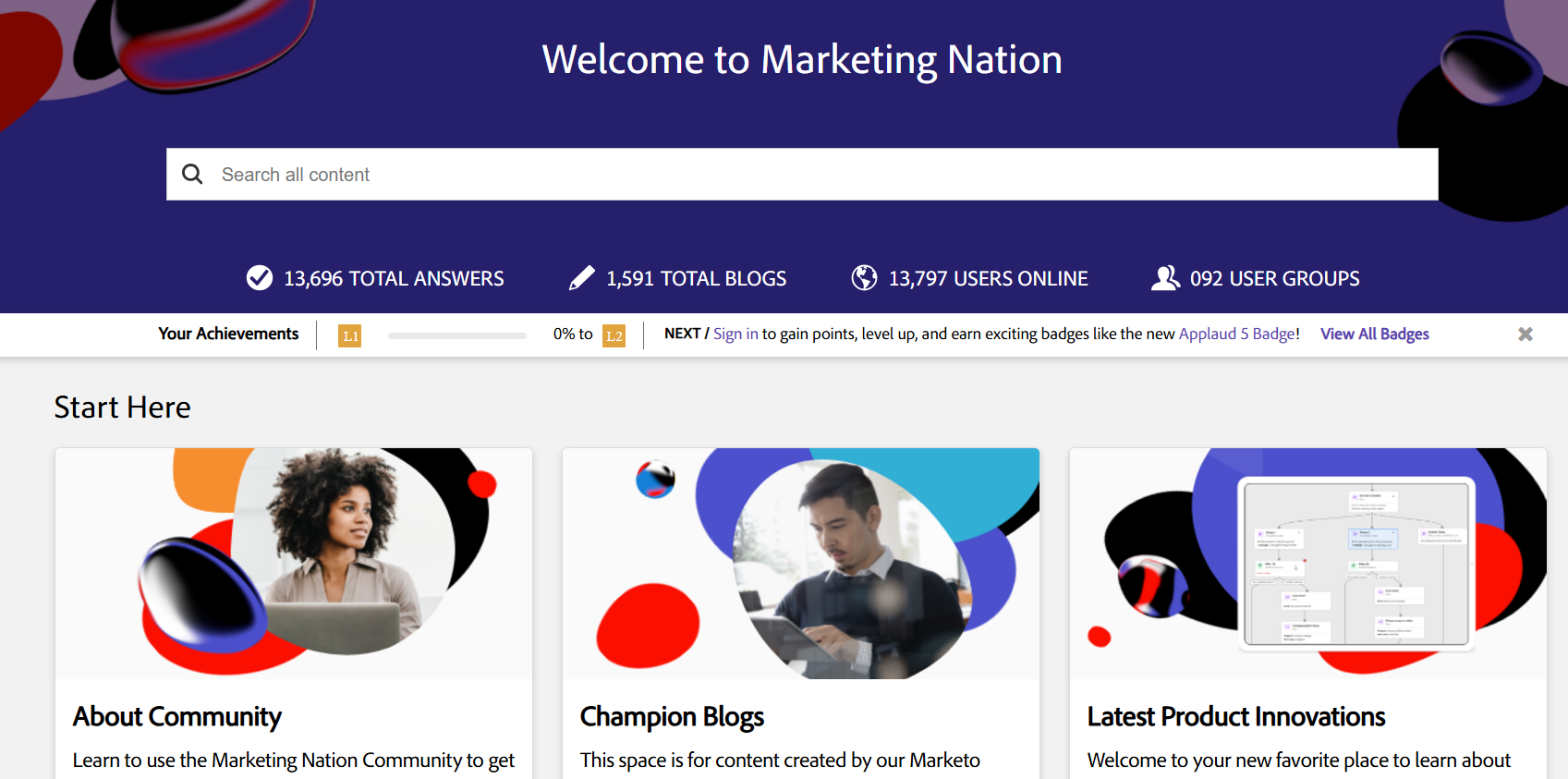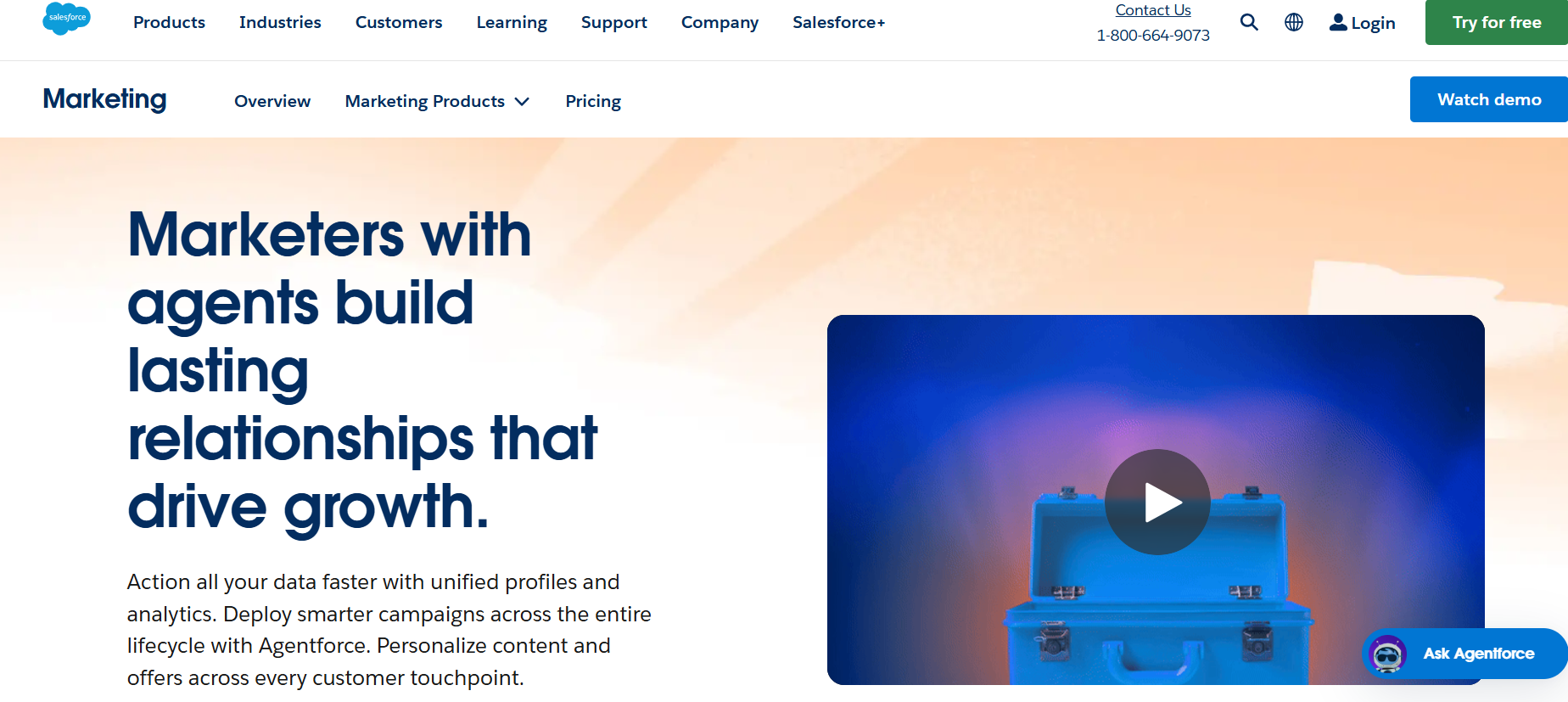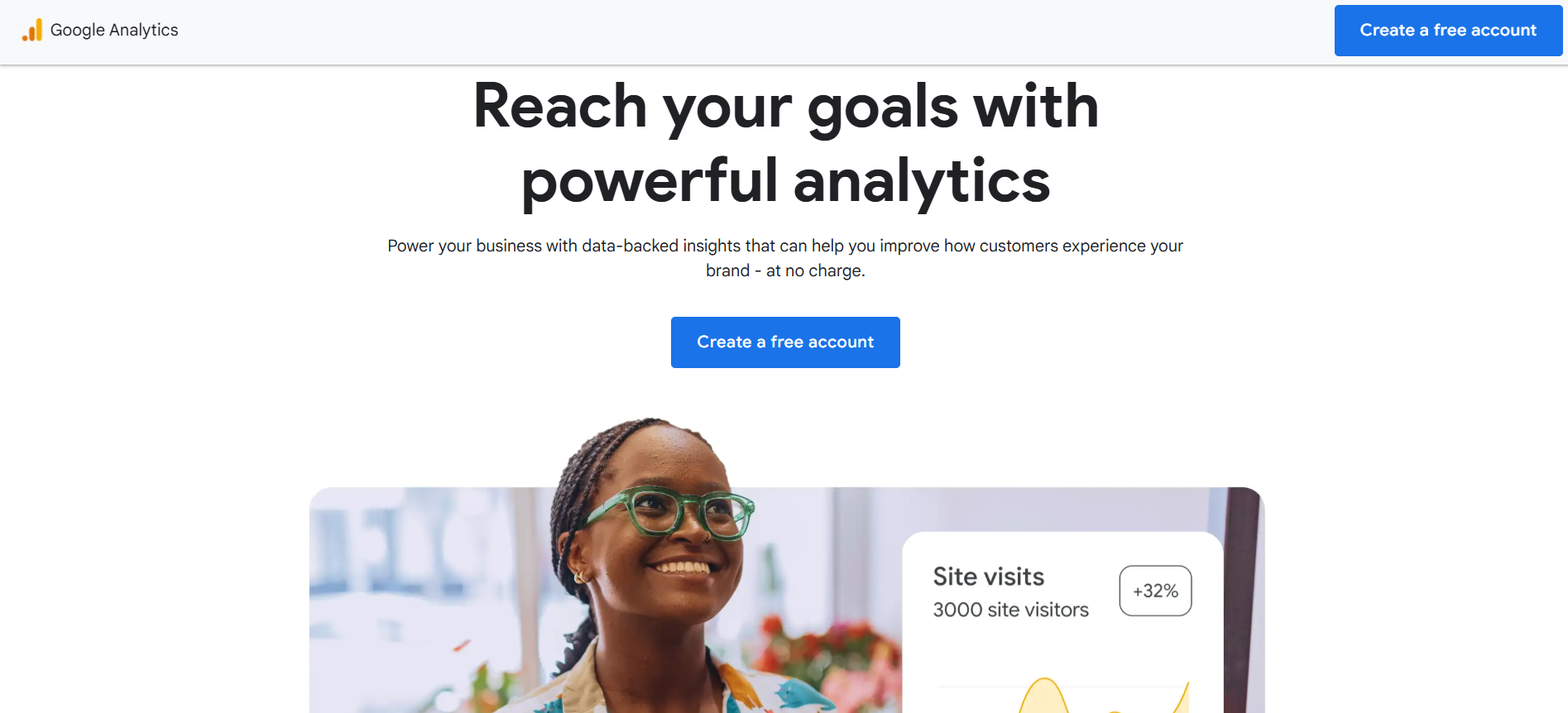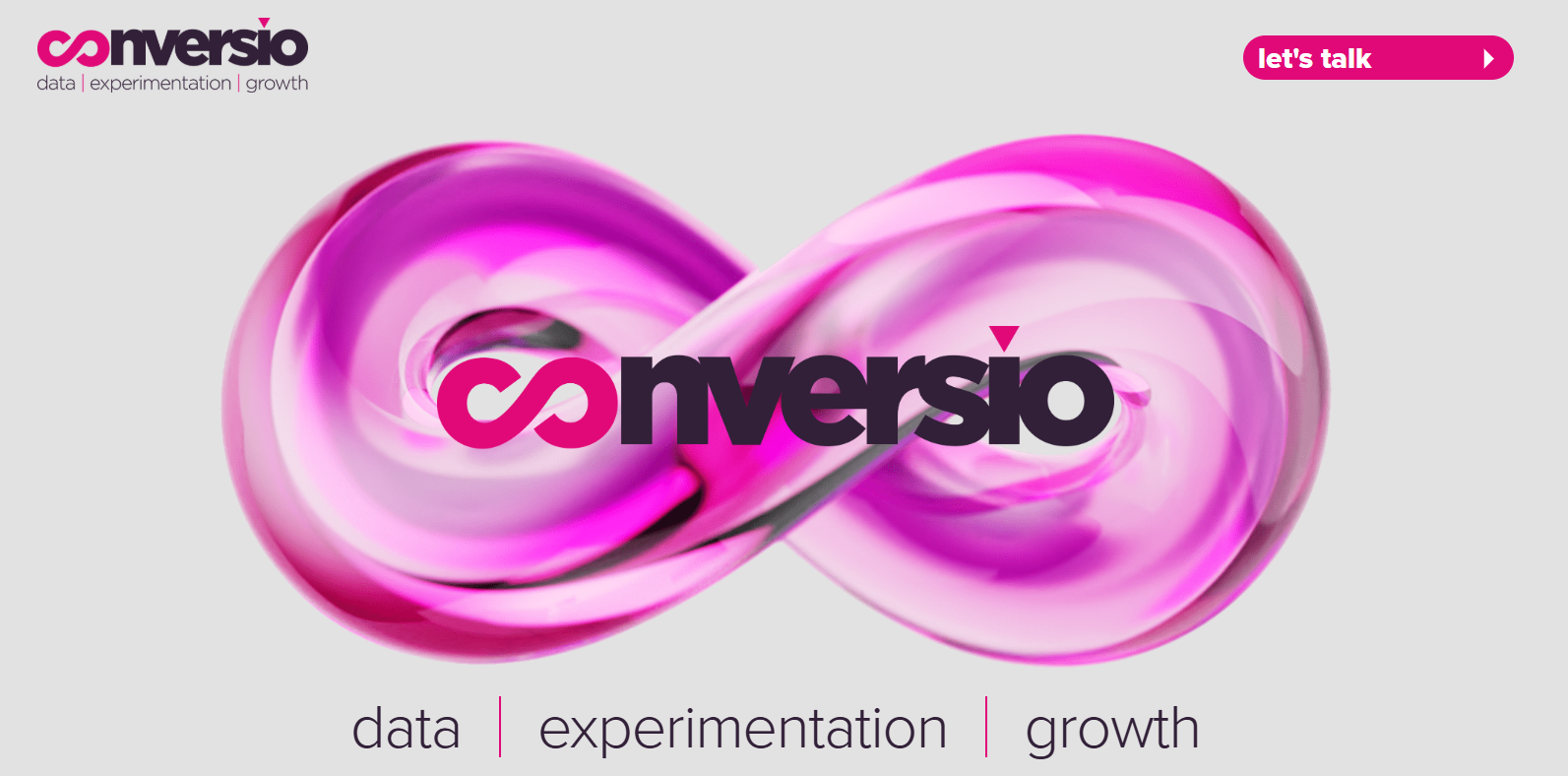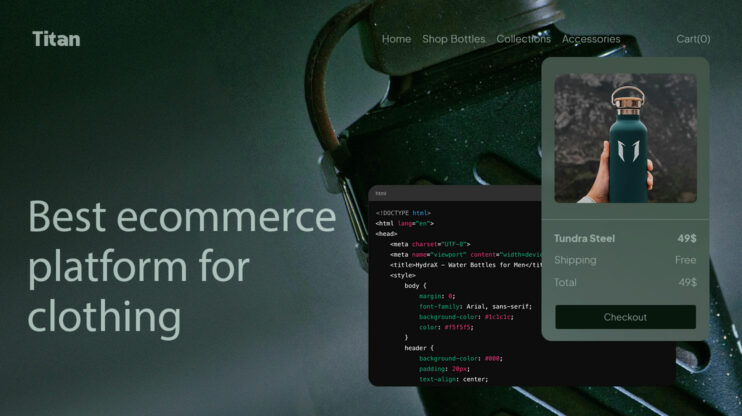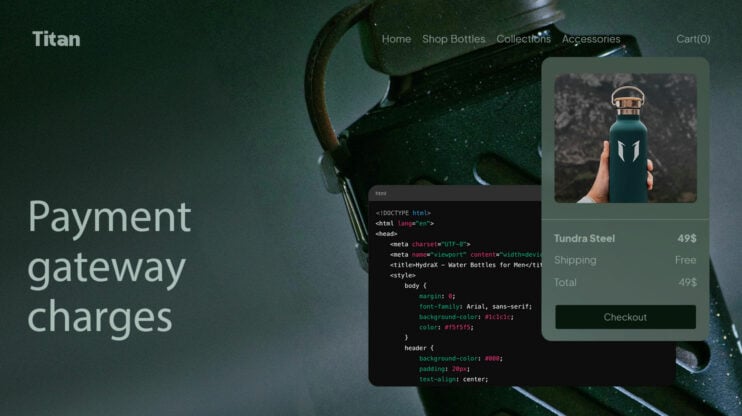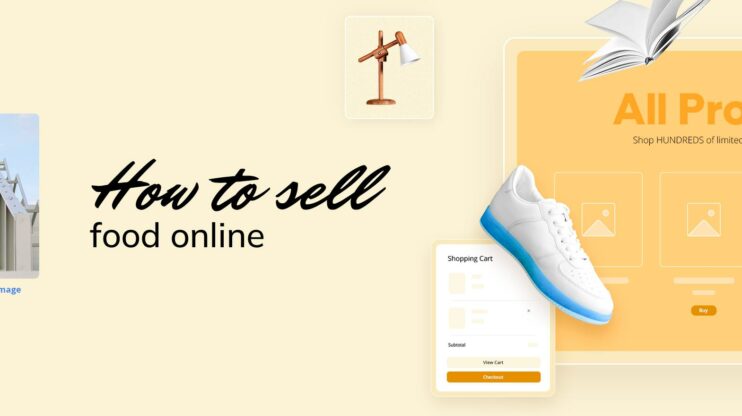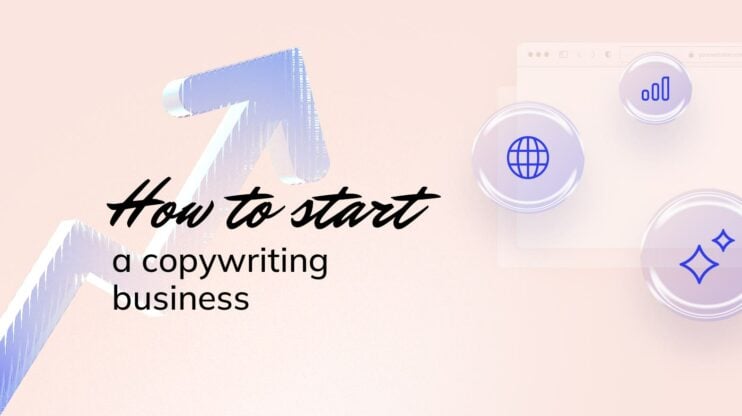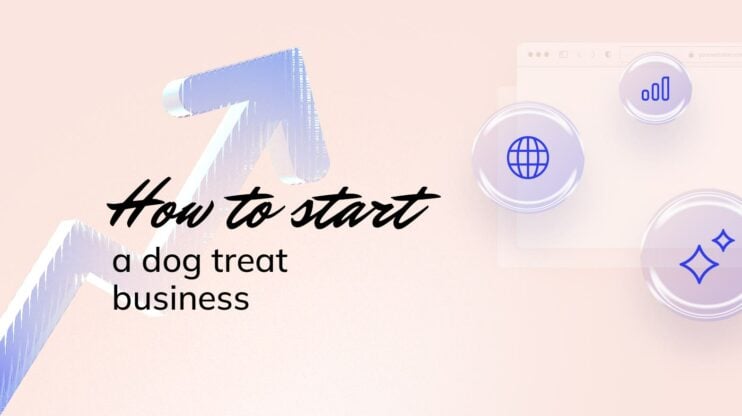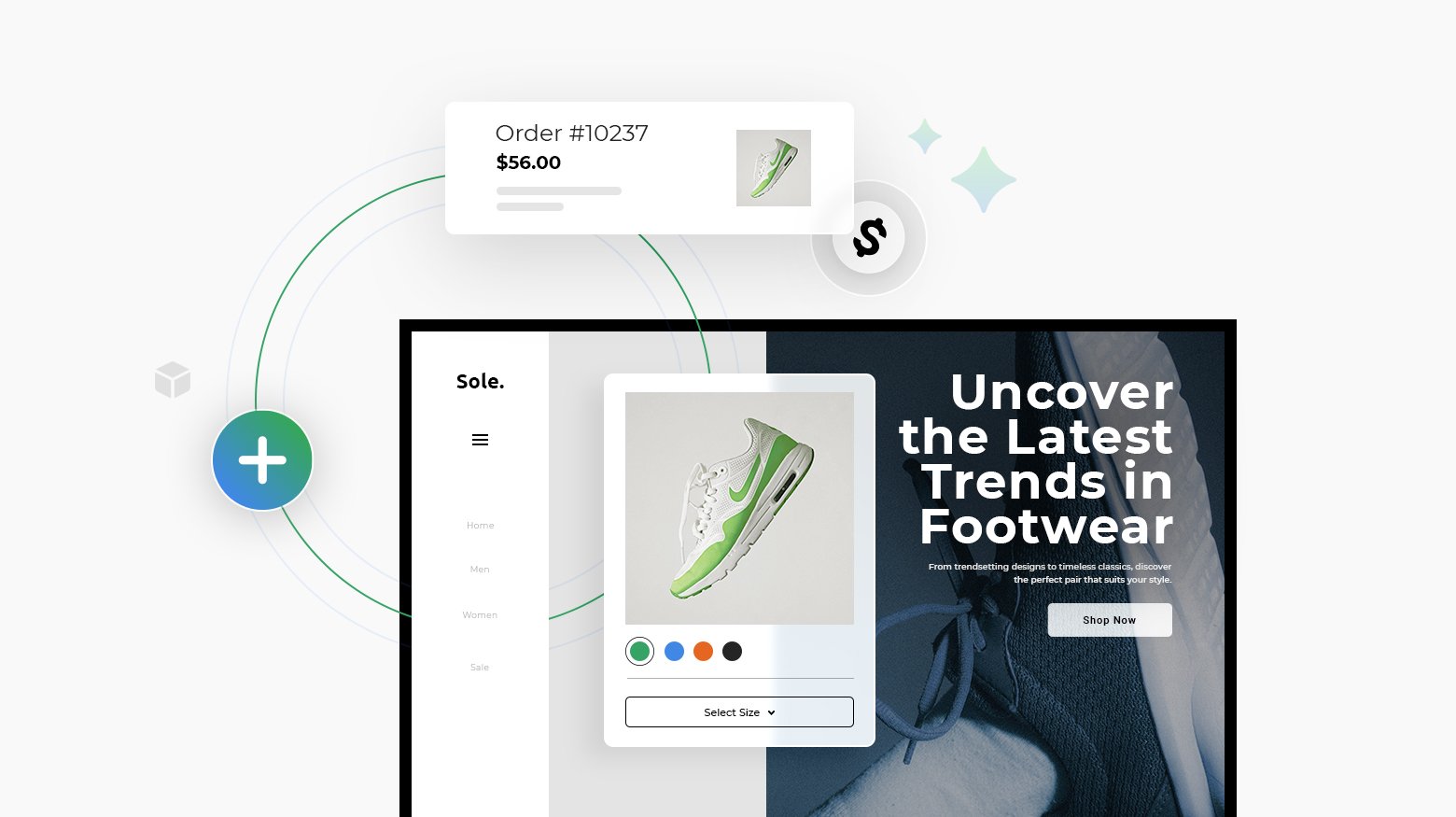Running an ecommerce business today requires more than just great products. To succeed, you need effective marketing strategies that simplify your processes, enhance customer engagement, and boost revenue. That’s where marketing automation tools come in—they help ecommerce businesses save time, reduce manual work, and create personalized, data-driven campaigns that drive results.
This article features 21 top marketing automation tools that can transform how you run your ecommerce business. From automating email campaigns and sending cart abandonment reminders to segmenting audiences for targeted messaging, these tools help you work smarter, not harder. Whether you want to optimize your customer journey or increase your ROI, these tools can make your ecommerce operations more efficient and impactful.
FAQ
What is ecommerce automation?
Which tool is commonly used for marketing automation?
How does Mailchimp compare to competitors?
Which type of CRM is used for marketing automation?
How does HubSpot perform for ecommerce?
Which platforms offer email automation?
Are there solutions for small businesses?
How do I measure ROI with these tools?
What are marketing automation tools?
Marketing automation tools help businesses simplify and automate their marketing tasks. These tools save time and boost efficiency for ecommerce companies.
Why do you need marketing automation for ecommerce?
Marketing automation tools are key to ecommerce success. They help you manage customer data, track behavior, and send targeted messages. With these tools, you can create personalized campaigns that reach customers at the right time.
You can set up automated email flows for cart abandonment, welcome series, and post-purchase follow-ups. This keeps your brand top-of-mind and encourages repeat purchases.
These tools also help you segment your audience. You can group customers based on their interests, purchase history, or browsing behavior. This lets you send more relevant offers and content.
After all, marketing automation helps online stores save time and improve customer relationships. It makes running an ecommerce business easier and more effective.
Marketing automation simplifies operations
Marketing automation tools can handle many tasks for your online store. They can send welcome emails to new customers automatically. These tools can also update your product listings across different sales channels. This saves you time and reduces errors.
Automation can help you manage your inventory better. It can alert you when stock is low and reorder products for you. This keeps your store running smoothly without constant oversight.
You can set up automated email campaigns to promote sales or new products. The system will send these emails at the right time to the right customers. This helps you make more sales without extra work.
Marketing automation improves customer experience
Marketing automation improves how you interact with customers. It lets you send personalized messages based on a customer’s actions. If someone leaves items in their cart, you can automatically send a reminder email.
These tools can track what products customers look at on your site. You can then show them similar items they might like. This makes shopping more enjoyable and can lead to more sales.
Automated customer service can answer common questions quickly. This means shoppers get help faster, even outside business hours. Happy customers are more likely to buy from you again.
Looking to sell online? Develop and launch your store with 10Web AI Ecommerce Website Builder.
Create your online store in minutes!
Key features of automation tools to consider
When choosing marketing automation tools for ecommerce, you need to look at a few key areas in evaluations. These include how well the tool works with your current systems, its ability to personalize customer interactions, and the insights it can provide through analytics. Let’s look at them in more detail.
Integration with existing systems
You want a tool that fits smoothly into your current setup. Look for options that connect with your ecommerce platform, CRM, and other software you use. This makes data flow easier and saves time.
Many tools offer pre-built integrations with popular platforms. Check if the tool you’re eyeing works with your specific tech stack.
Some tools use APIs for custom integrations. This can be helpful if you have unique needs or use less common software. Make sure to check how deep the integrations go. Some only sync basic data, while others allow for more complex workflows across systems.
Personalization capabilities
Personalization can boost sales and customer loyalty. Look for tools that let you tailor messages and offers based on customer data.
Good personalization features include:
- Segmentation tools to group customers by behavior or traits
- Dynamic content that changes based on who’s viewing it
- Product recommendations based on past purchases or browsing history
- Automated emails triggered by specific actions or events
Check if the tool can use data from multiple sources to create a full picture of each customer. This helps make personalization more accurate and effective.
Analytics and reporting
You need clear insights to improve your marketing efforts. Look for tools with strong analytics and easy-to-understand reports.
Key analytics features to consider:
- Real-time data on campaign performance
- Conversion tracking across different channels
- Revenue attribution to see which efforts drive sales
- A/B testing capabilities to compare different approaches
Make sure the tool presents data in a way that’s easy for you to grasp and act on. Visual reports with graphs and charts can be helpful. Look for the ability to create custom reports for your specific needs. This lets you focus on the metrics that matter most to your business.
21 top marketing automation tools for ecommerce
The right marketing automation tools for ecommerce can revolutionize how you manage your ecommerce business. Let’s look at the list of 21 top tools with unique features and benefits to help you with customer engagement and your business growth.
Klaviyo
Klaviyo is one of the marketing automation tools for ecommerce businesses. It helps you send personalized emails and SMS messages to your customers.
Klaviyo connects to your online store and uses your customer data to create targeted campaigns. You can set up automated flows for things like welcome emails, abandoned cart reminders, and post-purchase follow-ups.
The platform offers tools to segment your audience based on their behavior and preferences. This lets you send more relevant messages to different groups of customers.
Klaviyo works well for small to medium-sized ecommerce brands. It’s popular with fashion, beauty, and home goods retailers. The tool is best for businesses that want to grow their email marketing efforts.
| Pros | Cons |
|---|---|
| Easy to use email templates | Can be pricey for larger lists |
| Strong integration with ecommerce platforms | Learning curve for advanced features |
| Detailed analytics and reporting | Limited design options for pop-ups |
HubSpot
HubSpot offers a powerful marketing automation platform for ecommerce businesses. You can use it to create email campaigns, manage social media, and track customer interactions.
HubSpot’s tools help you nurture leads and boost sales. You can set up workflows to send personalized emails based on customer actions. This saves time and improves your marketing efforts.
The platform integrates with many ecommerce systems. This lets you sync customer data and order information easily. You can use this data to create targeted campaigns and analyze results.
HubSpot works well for small to medium-sized online stores. It’s also good for B2B ecommerce companies. The tool helps businesses in retail, fashion, and technology sectors.
| Pros | Cons |
|---|---|
| Easy to use interface | Can be pricey for small businesses |
| Strong email marketing features | Learning curve for advanced features |
| Good customer support | Some features require higher-tier plans |
Mailchimp
Mailchimp is another popular marketing automation tool for ecommerce businesses. You can use it to create and send email campaigns, manage customer lists, and track results. The platform offers pre-built automation flows that you can customize to fit your needs.
Mailchimp’s features include email marketing, contact management, and ecommerce integration. You can design emails with drag-and-drop templates and set up automated messages based on customer actions. The tool also helps you segment your audience for more targeted campaigns.
Small businesses and individual marketers often choose Mailchimp. It’s known for being user-friendly and affordable. Many ecommerce stores use it to boost sales and engage customers.
| Pros | Cons |
|---|---|
| Easy to use interface | Limited advanced features in basic plans |
| Affordable for small businesses | Can get pricey for large contact lists |
| Good range of pre-built templates | Learning curve for some automation features |
ActiveCampaign
ActiveCampaign is a powerful marketing automation tool for ecommerce businesses. It helps you create personalized customer experiences and turn shoppers into loyal fans. The platform offers intelligent automation features to streamline your marketing efforts. You can set up targeted campaigns based on customer data and behavior.
ActiveCampaign integrates with over 900 apps, making it easy to connect your ecommerce store. This lets you sync data and automate tasks across different tools you use.
Small to medium-sized online retailers often use ActiveCampaign. It’s popular in industries like fashion, electronics, and home goods. The tool works well for businesses looking to grow their customer base and boost sales.
| Pros | Cons |
| Powerful automation features | Can be pricey for larger contact lists |
| Many app integrations | Learning curve for new users |
| AI-powered targeting | Advanced features may be overkill for some |
Omnisend
Omnisend is an omnichannel marketing automation platform for ecommerce businesses. It helps you create and send emails, SMS messages, and push notifications to your customers.
You can use Omnisend to set up automated campaigns like welcome series, abandoned cart reminders, and order follow-ups. The platform offers pre-made templates to make email design quick and easy. Omnisend lets you personalize messages based on customer data and behavior. You can add product recommendations and discount codes to your emails automatically.
The tool is best for small to medium-sized online stores looking to grow their sales. It works well for fashion, beauty, and lifestyle brands.
| Pros | Cons |
|---|---|
| Easy to use email builder | Learning curve for advanced features |
| Supports multiple channels | Can be pricey for larger lists |
| Good ecommerce integrations | Limited design customization |
SharpSpring
SharpSpring is a budget-friendly marketing automation tool for small and medium businesses. It offers a wide range of features to help you manage your ecommerce marketing efforts. The platform includes email marketing, social media management, and lead-tracking capabilities. You can use it to create personalized welcome email flows for new subscribers and customers.
SharpSpring’s CRM integration allows you to connect your marketing and sales data. This helps you track customer interactions and improve your sales process. The tool provides detailed analytics and reporting features. These help you understand which marketing efforts are working best for your ecommerce business.
SharpSpring is popular among marketing agencies and small online retailers. It’s a good fit for businesses that want powerful automation features without a high price tag.
| Pros | Cons |
|---|---|
| All-in-one platform for marketing automation | Can be complex for beginners |
| Budget-friendly option | Limited integrations compared to some competitors |
| Good for small to medium businesses | May require technical setup |
Drip
Drip is a marketing automation tool made for ecommerce businesses. It helps online stores connect with customers through email, popups, and other automated channels.
Drip offers features like customer segmentation and detailed insights. This lets you target specific groups with personalized messages. You can also test different versions of your emails to see what works best. The platform integrates easily with many ecommerce systems. This makes it simple to sync your store data and set up automated flows.
Small to medium-sized online retailers often use Drip. It’s popular in industries like fashion, beauty, and home goods. Drip works well for businesses that want to grow their online sales through targeted marketing.
| Pros | Cons |
|---|---|
| Strong customer segmentation | Learning curve for new users |
| Multi-channel automation | Can be pricey for small businesses |
| Ecommerce-specific features | Limited design options for emails |
Moosend
Moosend is an email marketing and automation platform for ecommerce businesses. It offers tools to create and send professional-looking campaigns. You can use it to grow your audience and boost sales.
The platform has easy-to-use features for beginners and advanced marketers. You can set up automated emails for abandoned carts and user onboarding. It also lets you score leads and send VIP offers to top customers.
Small to medium-sized ecommerce businesses often use Moosend. It’s popular in retail, fashion, and digital products industries. The tool works well for companies looking to start or improve their email marketing.
| Pros | Cons |
|---|---|
| Easy to learn and use | Limited advanced features |
| Affordable pricing | Fewer integrations than some competitors |
| Good automation workflows | Basic reporting options |
Getresponse
Getresponse is an all-in-one marketing platform for ecommerce businesses. It offers email marketing tools, landing page builders, and automation features. You can use Getresponse to create personalized customer journeys across multiple channels. These include emails, SMS, web push notifications, and paid ads.
The platform integrates with online stores to sync product and customer data. This lets you set up targeted campaigns based on shopping behavior. Getresponse’s visual drag-and-drop designer helps you build automated marketing workflows. You can use these to nurture leads and boost conversions.
The tool works well for small to medium-sized ecommerce companies. It’s popular in retail, digital products, and service-based industries.
| Pros | Cons |
|---|---|
| Easy-to-use interface | Can be pricey for larger lists |
| Built-in CRM | Limited design options for emails |
| Good automation features | Learning curve for advanced features |
Brevo (previously Sendinblue)
Brevo is a marketing automation tool for ecommerce that can help you grow your ecommerce business. It offers email marketing, SMS marketing, and chat features. You can use Brevo to create and send targeted email campaigns to your customers. The platform lets you design emails with a drag-and-drop editor.
Brevo’s automation tools allow you to set up workflows based on customer actions. This can save you time and help nurture leads. The platform also provides landing page creation and CRM features. These tools can help you capture leads and manage customer relationships.
Brevo is used by small to medium-sized businesses across many industries. It’s popular with ecommerce stores, bloggers, and online service providers.
| Pros | Cons |
|---|---|
| Free plan available | Limited templates compared to some competitors |
| User-friendly interface | Some advanced features only in higher-priced plans |
| Good deliverability rates | Learning curve for new users |
Autopilot
Autopilot is a marketing automation tool that helps ecommerce businesses create personalized customer journeys. You can use it to send emails, SMS, and in-app messages to your leads and customers at the right time. The software offers features like email automation, lead scoring, and customer segmentation. You can design custom marketing campaigns and set up triggers based on user behavior.
Small to medium-sized ecommerce businesses often use Autopilot. It’s popular in retail, fashion, and online services industries. Autopilot works well for companies looking to improve their customer engagement and conversion rates. It’s a good fit for businesses that want an easy-to-use platform without sacrificing powerful automation features.
| Pros | Cons |
|---|---|
| Visual autoresponder editor | Limited integration options |
| Email and SMS marketing | May have a learning curve |
| Ecommerce platform integration | Pricing may be high for small businesses |
Keap
Keap is a marketing automation tool for small businesses. It combines customer relationship management (CRM) with automation features. You can use Keap to manage contacts, send emails, and handle payments.
Keap offers tools to help you grow your business. You can set up email campaigns and track customer interactions. The software also lets you create invoices and take payments.
Keap is popular among small business owners and entrepreneurs, especially in service industries like coaching and consulting. It helps small to medium-sized businesses automate marketing and sales tasks.
| Pros | Cons |
|---|---|
| All-in-one solution for CRM and automation | Can be pricey for very small businesses |
| Includes payment processing tools | Learning curve for new users |
| Good for service-based businesses | Some features may be too complex for simple needs |
Bardeen.ai
Bardeen.ai is another marketing automation tool for ecommerce that helps businesses with their workflows. It offers a Chrome extension that lets you create custom automations across different apps.
You can use Bardeen to automate tasks like lead generation, data extraction, and email outreach. This saves time and helps you focus on growing your business. The platform is useful for sales and marketing teams in ecommerce. It works well for small to medium-sized businesses looking to improve their productivity.
Bardeen integrates with popular tools like Gmail and Google Workspace. This makes it easy to fit into your existing tech stack.
| Pros | Cons |
|---|---|
| Easy to use Chrome extension | Limited to Chrome browser |
| Custom automation workflows | May need technical skills for complex automations |
| Integrates with popular tools | Pricing not clearly listed on website |
Mailerlite
Mailerlite is an email marketing tool that helps ecommerce businesses boost sales. You can use it to send automated emails based on customer actions. The platform offers a drag-and-drop editor for creating emails. This makes it easy to design messages without coding skills.
Mailerlite lets you set up triggers for sending emails. These can be based on purchases, website visits, or form submissions. You can use Mailerlite to create welcome emails for new subscribers. It also supports lead magnet delivery and event reminders. The tool integrates with ecommerce platforms to sync customer data. This allows for more targeted marketing campaigns.
Mailerlite works well for small to medium-sized online stores. It’s popular in retail, digital products, and subscription-based businesses.
| Pros | Cons |
|---|---|
| Easy-to-use interface | Limited advanced features |
| Affordable pricing | Email template variety could be better |
| Good automation options | Learning curve for some features |
Marketo
Marketo is a powerful marketing automation platform that can help your ecommerce business. It lets you create personalized campaigns to reach customers across different channels. You can use Marketo to send targeted emails, run social media ads, and track how people interact with your website.
With Marketo, you can set up automated workflows to nurture leads and guide them through the buying process. The platform offers features like lead scoring, which helps you focus on your most promising prospects. You can also use it to segment your audience and send them customized content.
Marketo is often used by mid-size to large companies in industries like tech, healthcare, and retail. It’s a good fit for businesses that have complex sales cycles and want to improve their marketing ROI.
| Pros | Cons |
|---|---|
| Advanced automation features | Can be pricey for small businesses |
| Strong lead management tools | Steep learning curve |
| Integrates with many other platforms | May require technical skills to set up |
Salesforce Marketing Cloud
Salesforce Marketing Cloud is a powerful tool for ecommerce businesses. It helps you build strong relationships with customers using AI and data. You can use it to manage your marketing campaigns across different channels like email, ads, and mobile.
With Marketing Cloud, you can personalize content for your customers. This is important because many people expect messages that are just for them. The tool lets you use your customer data to create targeted campaigns.
Marketing Cloud offers several features for ecommerce. You can connect it to other platforms like Commerce Cloud B2C and Amazon. This allows you to pull in your sales data and use it for marketing.
The tool is great for businesses of all sizes. It’s especially useful if you want to improve how you talk to customers. You can use it to send emails, run social media ads, and more.
| Pros | Cons |
|---|---|
| Uses AI to improve marketing | Can be complex to set up |
| Works across many channels | Might be pricey for small businesses |
| Connects with other ecommerce tools | Requires time to learn all features |
Google Analytics
Google Analytics is a free marketing automation tool for ecommerce businesses that helps you track visitor activity on your website. It shows you how many people visit your site, where they come from, and what they do while browsing.
You can see which pages are most popular and how long visitors stay on each page. This information helps you understand what content your customers like best.
Google Analytics also tracks where your traffic comes from. You can see if visitors find you through search engines, social media, or other websites. This helps you focus your marketing efforts on the most effective channels. The tool offers reports on visitor demographics like age, gender, and location. You can use this data to tailor your products and messaging to your target audience.
Ecommerce businesses use Google Analytics to track sales and revenue. You can see which products sell best and which marketing campaigns drive the most purchases.
| Pros | Cons |
|---|---|
| Free to use | Can be complex for beginners |
| Detailed website data | Requires some setup |
| Helps improve marketing | Learning curve to use effectively |
Conversio
Conversio is another marketing automation tool for ecommerce businesses. It helps you create email campaigns and manage customer relationships. You can use it to send personalized messages and boost sales.
Conversio offers features like abandoned cart recovery and product recommendations. It also lets you make newsletters and follow-up emails. You can track how well your campaigns are doing with its analytics tools.
Conversio is ideal for medium to large online stores, especially those on platforms like Shopify or WooCommerce. Popular in retail, fashion, and home goods, it’s a feature-rich tool for growing sales through email marketing, though it comes at a higher price point.
| Pros | Cons |
|---|---|
| Lots of features | Can be pricey for small businesses |
| Good for larger stores | Might be too complex for beginners |
| Integrates with popular platforms | Learning curve can be steep |
Conclusion
Marketing automation tools are inseparable from today’s business operations. Chosen correctly, these tools will help simplify operations, engage customers, and boost revenue in ecommerce. The 21 tools we discussed in this article offer features like email automation, audience segmentation, and analytics to help businesses save time and work smarter.
These tools empower you to focus on building relationships and scaling your business—making them a strategic investment for your ecommerce success.
Looking to sell online? Develop and launch your store with 10Web AI Ecommerce Website Builder.
Create your online store in minutes!


